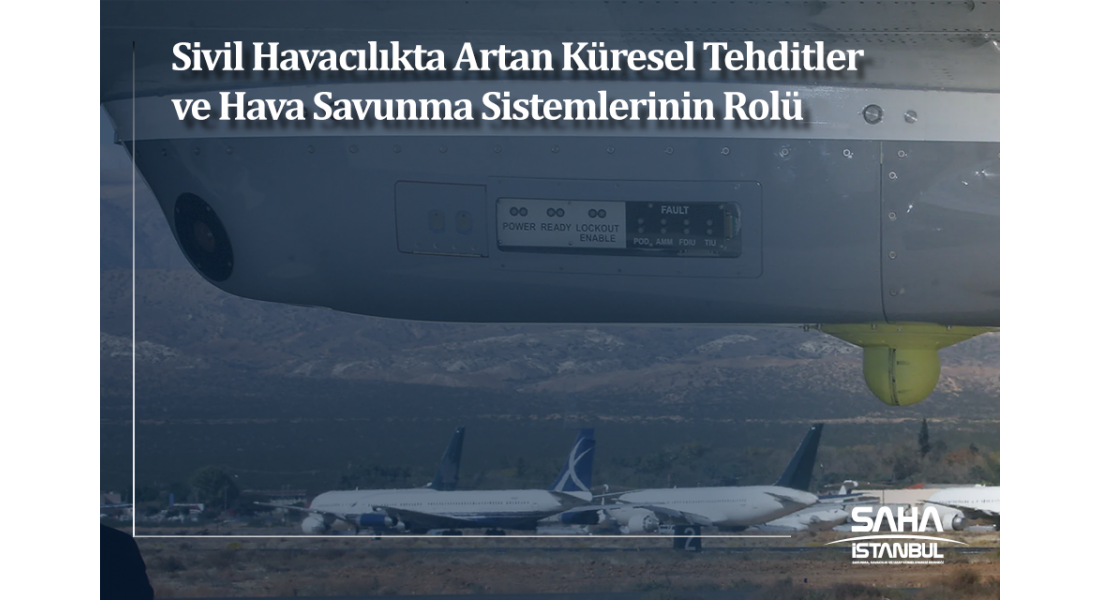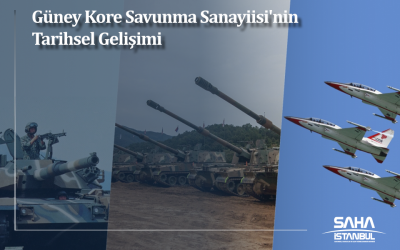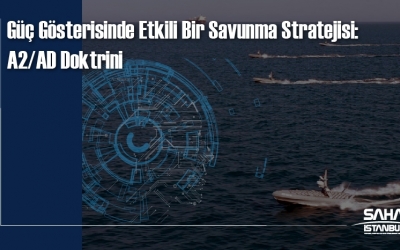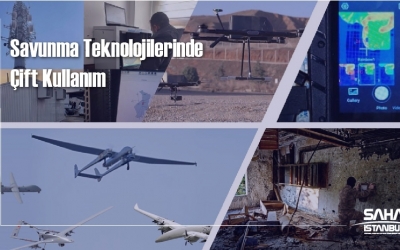
Enhancing Global Security in Civil Aviation: The Crucial Role of Air Defence Systems
Civil aviation stands as a pivotal and rapidly evolving sector on the global stage, encompassing interconnected elements such as airline companies, airports, and the aviation industry at large. While playing a vital role in facilitating efficient and swift transportation of people and materials, the rapid growth of this sector has brought forth a set of significant challenges. Foremost among these challenges is the imperative need for a thorough consideration of security issues, particularly in the face of terrorism threats and airspace risks.
Shifts in Global Security Posture
The terrorist attacks on September 11, 2001, marked a watershed moment that fundamentally altered the security paradigm of civil aviation, ushering in profound changes that continue to impact the sector. Subsequent tragic events, such as the 2003 attack on a DHL cargo plane in Baghdad and the 2014 downing of a Malaysia Airlines plane at an altitude of 33,000 feet, have compelled manufacturers of air defence systems to innovate solutions that further fortify the security of civil aviation.
These incidents heightened the seriousness of terrorism threats and airspace risks, underscoring the need to enhance security standards and technologies related to air travel. In response, air defence systems have played a pivotal role in addressing these challenges, striving to provide effective, intelligent, and resilient solutions against diverse threats. Post-9/11, manufacturers of air defence systems dedicated substantial efforts to develop more robust measures, encompassing radar technology, command and control units, missile launchers, and innovative technologies like infrared laser energy. Additionally, these tragic events spurred international collaborations and standards aimed at minimizing risks within the civil aviation sector.
Evolving Technologies for Enhanced Security
The civil aviation industry, adopting technological advancements, has actively sought to create a safer and more sustainable sector. High-tech air defence systems play a critical role in increasing aviation security and ensuring the reliability of passenger transport. Considering these developments, the civil aviation sector consistently strives to improve security standards, drawing lessons from past tragic events. Air defence systems emerge as crucial elements, offering effective defence against the evolving threats faced by the sector, continuously evolving to meet the challenges posed.
The Role of Air Defence Systems in Civil Aviation Security
Air defence systems, comprising complex components such as radars, command and control units, and missile launchers, play a pivotal role in ensuring the safety of civil aviation. Equipped with advanced technologies, especially innovative solutions like infrared laser energy, these systems make it challenging for missiles to accurately target aircraft.
Portable air defence systems, known as MANPADS, pose a significant threat to modern civil aviation. Designed to engage visually observable air targets by targeting objects radiating radiation in the infrared spectrum, MANPADS have been utilized in numerous armed conflicts since 1969. Approximately 27 terrorist organizations worldwide are known to possess these lightweight missiles, highlighting the serious threat they pose to civil aviation.
Innovations in Air Defence Systems
In response to these serious threats, leading firms, including BAE Systems and Northrop Grumman, have developed innovative missile defence systems to enhance the security of civil aviation. One notable system, the JetEye infrared missile defence system, has been successfully tested by American Airlines and subjected to use by major corporations like FedEx on civilian aircraft, prompting regulatory approval from the Federal Aviation Administration (FAA).
Moreover, countries like the United States, the United Kingdom, and Australia have taken significant steps to bolster aviation security by equipping military transport units with protective technologies. These proactive measures aim to elevate security standards within the sector and provide effective defence against potential threats.
Conclusion: Augmenting Reliability in International Transportation
Air transportation, especially when compared to road and sea transport, plays a crucial role in transporting high-value goods. The rapid development of the civil aviation sector has increased the demand for air defence systems to ensure customer confidence and has reshaped the dynamics of the industry. This trend is equally applicable to leading companies in international transportation. The success achieved by Turkish Cargo in 2022 serves as a testament to how effectively companies can operate within a vast and complex network. However, alongside these achievements come new responsibilities and risks associated with growth potential and international operations.
Turkish Air Transport, through collaborations with leading defence industry firms like Aselsan, in integrating air defence systems, contributes significantly not only to Turkey's security but also to the global civil aviation sector. Especially for major companies operating flights to regions with high terrorist activities, such integrations not only prevent financial losses but also enhance international credibility, adding a critical layer of security to the industry. These integrations play a pivotal role not only for companies but also for the reliability and resilience of the international air transportation industry. These security measures contribute to the continuous evolution of civil aviation towards a safer and more sustainable future.
SAHA Blog

Strategic Importance of Africa: Natural Resources, Security, and Geopolitical Dynamics

Overview of Tanks on the Battlefield: Russia-Ukraine War

Uzay Savaşının Gelişen Askeri Doktrinler ve Strateji Üzerindeki Etkisi

Historical Development of the South Korean Defense Industry

Biyosavunma: Doğanın Gücünden İlham Alıyor

Güç Gösterisinde Etkili Bir Savunma Stratejisi: A2/AD Doktrini

Savunma Teknolojilerinde Çift Kullanım



